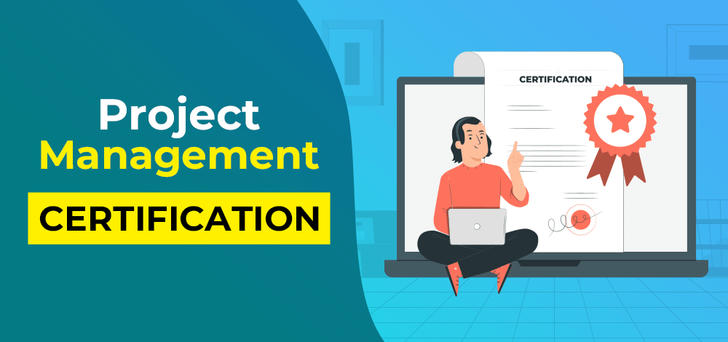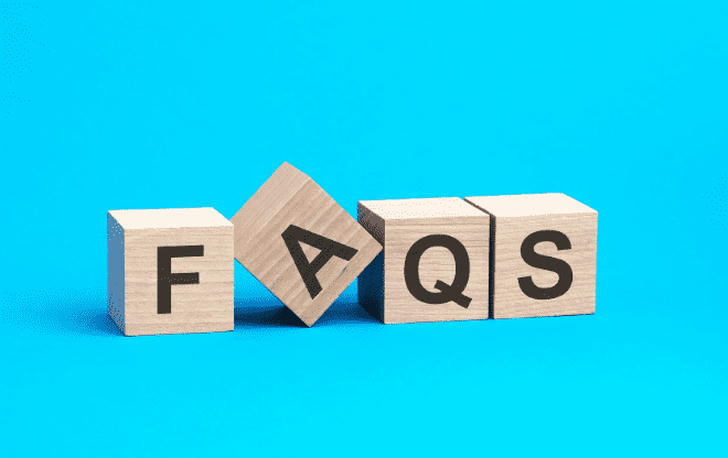Project Management Professional (PMP) Certification: Your Path to Career Advancement
The Project Management Professional (PMP) certification is one of the most esteemed qualifications in the project management field, recognized globally for its ability to enhance careers and open doors to new opportunities. Whether you're a seasoned project manager aiming to validate your skills or an aspiring professional looking to advance your career, obtaining PMP certification can be a transformative step toward success.

Advantages of Getting PMP Certification
1.Career Advancement
PMP certification is highly regarded by employers worldwide. It signifies that you have the expertise and leadership qualities needed to manage complex projects, making you eligible for senior roles like Project Manager, Program Manager, and Project Director. In a competitive job market, it sets you apart from others and positions you for leadership opportunities.
2.Higher Earning Potential
One of the most compelling reasons to pursue PMP certification is the financial reward. According to PMI’s Earning Power: Project Management Salary Survey, PMP-certified professionals earn, on average, 20% more than their non-certified counterparts. This significant salary boost is particularly attractive for those seeking to grow their income in project management.
3.Global Recognition
The PMP credential is globally recognized, providing access to job opportunities not just locally but also internationally. Employers across the globe trust PMP-certified professionals to manage projects effectively, making it an excellent choice if you're considering working abroad or managing international projects.
4.Industry Versatility
The PMP certification is relevant across various industries, including IT, healthcare, finance, construction, and many more. This versatility means that PMP-certified professionals can transition between sectors and apply their project management expertise in diverse roles.
5.Enhanced Skills and Knowledge
Obtaining PMP certification equips you with advanced project management tools and methodologies, enhancing your skills in areas such as budgeting, scheduling, risk management, and quality control. These competencies increase your effectiveness in leading projects and contribute to higher project success rates.
6.Networking Opportunities
PMP-certified professionals gain access to PMI’s global network of like-minded individuals, offering ample opportunities for collaboration, mentorship, and career growth. PMI chapters host events and conferences, helping you stay connected with industry leaders and peers.
How to Get PMP Certification
Obtaining PMP certification requires fulfilling specific eligibility criteria, completing project management education, and passing the PMP exam. Here’s a step-by-step guide:
Step 1: Meet Eligibility Requirements
To be eligible for the PMP exam, you must meet the following criteria:
With a four-year degree (bachelor’s or equivalent):
• 3 years (36 months) of project management experience
• At least 4,500 hours leading and directing project work
• 35 hours of project management education or training
With a high school diploma or associate degree:
• 5 years (60 months) of project management experience
• At least 7,500 hours leading and directing project work
• 35 hours of project management education or training
Step 2: Complete 35 Hours of Project Management Education
You must complete 35 hours of project management education. These can be obtained through online courses, in-person workshops, or PMI-approved programs, covering key topics such as project scope, budgeting, and scheduling.
Step 3: Submit Your PMP Application
Once you meet the eligibility requirements, submit your application on PMI’s website. The application will request details about your project management experience. PMI will review your application, and in some cases, may ask for additional documentation.
Step 4: Prepare for the PMP Exam
The PMP exam consists of 180 multiple-choice questions covering five process groups: Initiating, Planning, Executing, Monitoring and Controlling, and Closing. Prepare for the exam using study guides, online courses, and practice exams. PMI also provides exam prep materials to help you get ready.
Step 5: Take the PMP Exam
After your application is approved, schedule the exam through PMI’s portal. You can take the exam at a Pearson VUE test center or online via remote proctoring. The exam is 4 hours long, and upon completion, you will receive your score.
Step 6: Maintain Your PMP Certification
Your PMP certification is valid for 3 years. To maintain it, you need to earn 60 professional development units (PDUs) by participating in educational activities such as workshops, webinars, and training.
Salary Increase with PMP Certification
One of the key motivators for pursuing PMP certification is the significant salary boost it offers. According to PMI’s Earning Power: Project Management Salary Survey, PMP-certified project managers earn an average of 20% more than their non-certified peers.
Salary Range Before PMP Certification:
• Entry-level project managers: $50,000 to $70,000 annually
• Mid-level project managers: $70,000 to $90,000 annually
Salary Range After PMP Certification:
• Entry-level project managers: $60,000 to $80,000 annually
• Mid-level project managers: $90,000 to $110,000 annually
• Senior project managers: $100,000 to $130,000 or higher
While location, industry, and experience can affect salary ranges, obtaining PMP certification is a proven way to enhance your earning potential.

Common FAQs About PMP Certification
1.What is the PMP exam like?
The PMP exam consists of 180 multiple-choice questions covering project management processes. You have 4 hours to complete the exam.
2.How should I prepare for the PMP exam?
Preparation involves studying project management principles, using study guides, online courses, and practice exams. PMI also offers exam preparation materials.
3.What is the cost of PMP certification?
The PMP exam costs $405 for PMI members and $555 for non-members. PMI membership costs around $129 annually and provides discounts on exam fees.
4.How long is PMP certification valid?
PMP certification is valid for 3 years. To maintain it, you need to earn 60 PDUs through workshops, courses, or webinars.
5.Can I take the PMP exam online?
Yes, the PMP exam is available through online proctoring, allowing you to take the exam from the comfort of your home.
6.What if I fail the PMP exam?
If you fail, you can retake the exam up to three times within a year. Additional study and preparation may be needed before retaking the exam.
7.How long does it take to earn PMP certification?
On average, it takes 3 to 6 months to prepare for the PMP exam, depending on your schedule and study habits.
8.Is PMP certification worth it?
Yes, PMP certification is widely considered a valuable credential that enhances job prospects, increases salary potential, and provides professional development opportunities.
9.Can I still get PMP certified if I have limited project management experience?
If you don’t meet the full experience requirements, consider starting with the Certified Associate in Project Management (CAPM) certification, which serves as a stepping stone to the PMP.
Final Thoughts
PMP certification is a powerful tool for advancing your career in project management. It not only boosts your earning potential but also opens doors to global opportunities and enhances your skills. With the proper preparation, the rewards of becoming PMP certified are significant and long-lasting.
